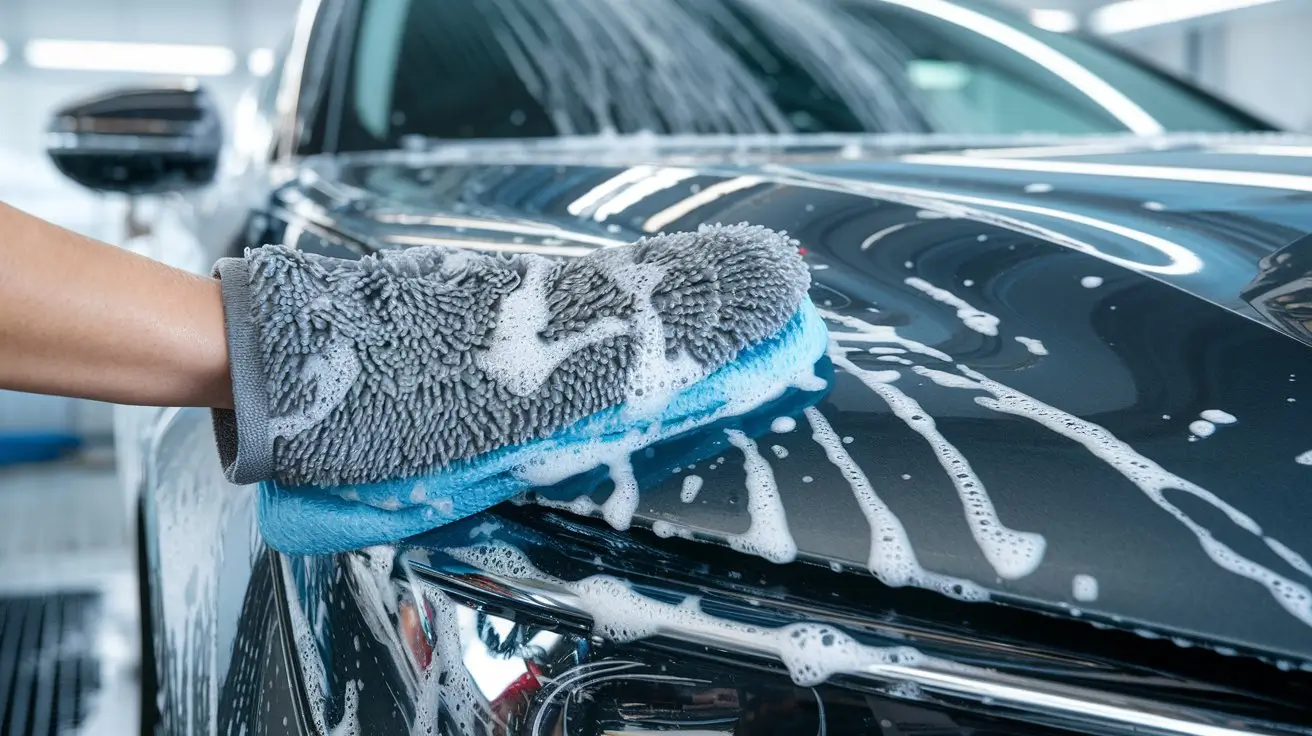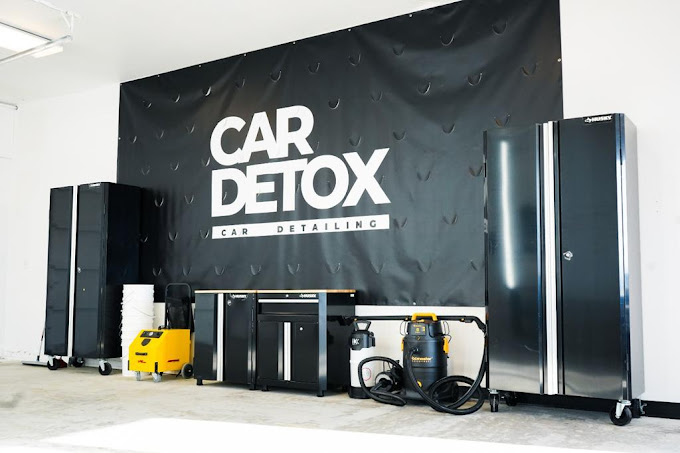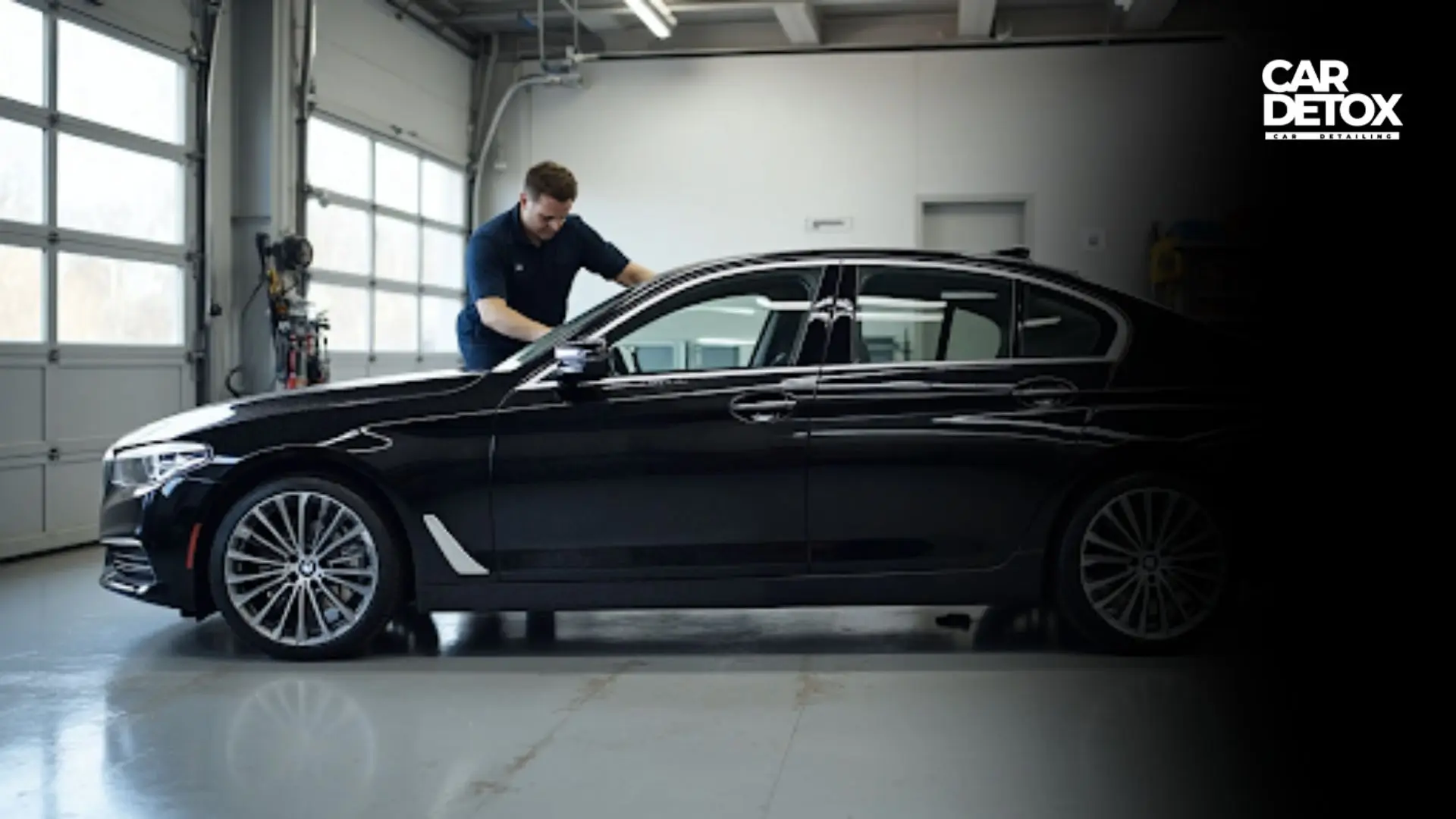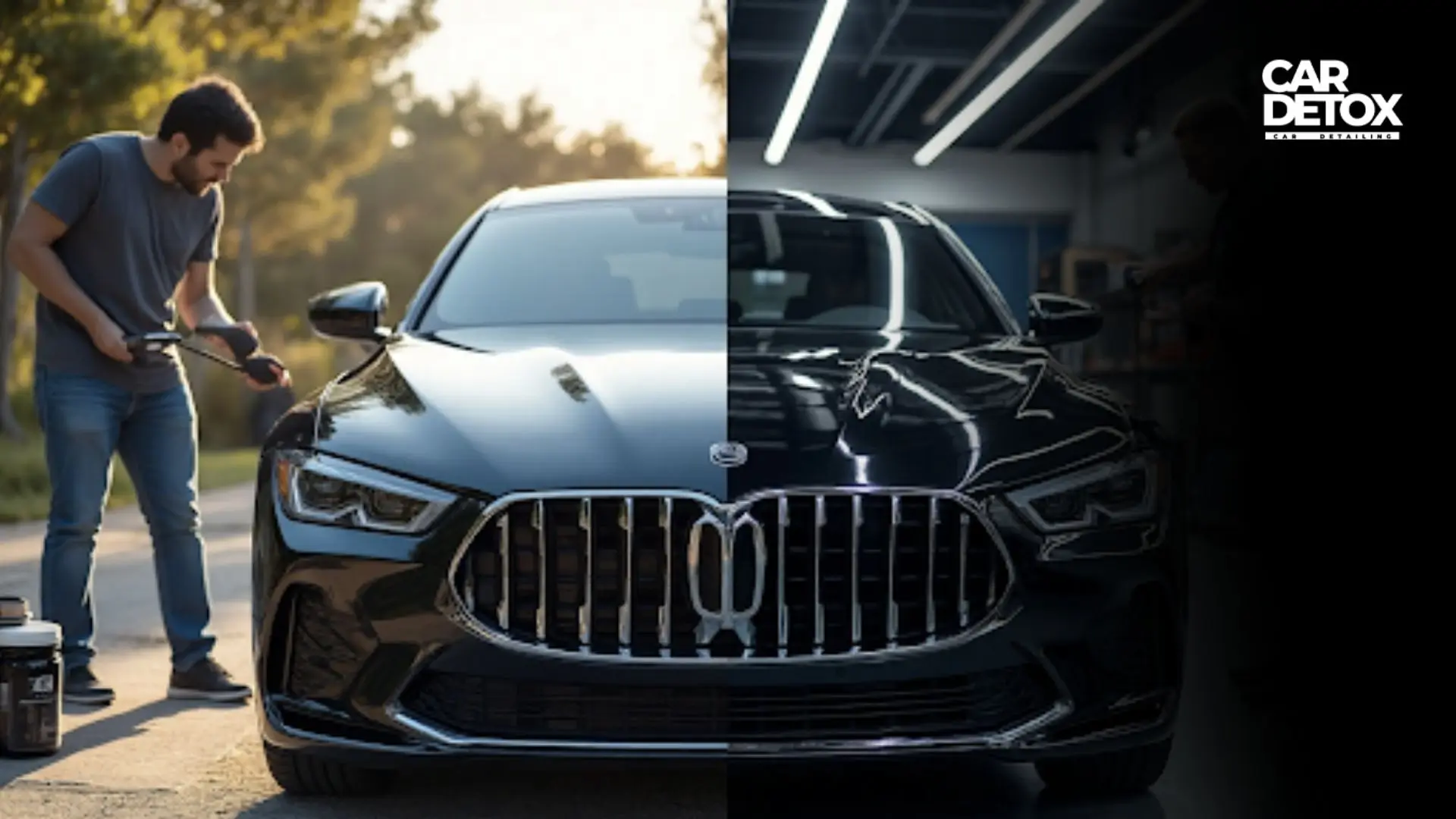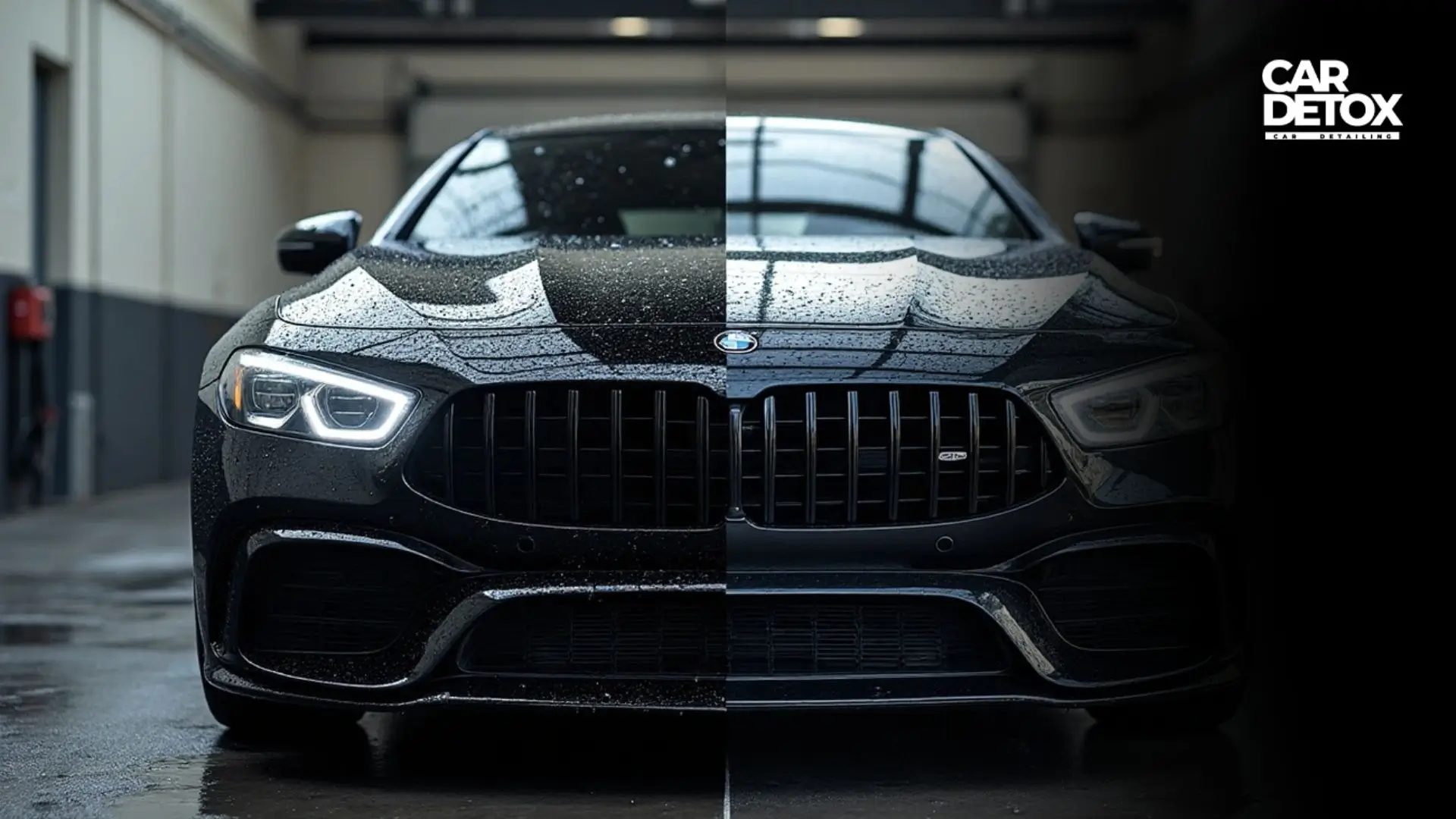- I. Understanding Car Wash Soaps
- II. How Car Wash Soap Interacts with Paint (Can Car Wash Soap Damage Paint? )
- III. Potential Risks of Using Car Wash Soap
- IV. Proper Car Washing Techniques
- V. Myths vs. Facts: Car Wash Soap and Paint Damage
- VI. Alternative Car Cleaning Methods
- VII. Professional Car Washing vs. DIY
- VIII. Protecting Your Car's Paint
- IX. Environmental Considerations
- X. Special Considerations for Different Paint Types
- XI. Troubleshooting Paint Issues
- XII. Maintaining Your Car's Appearance Long-term
- XIII. Conclusion
- Frequently Asked Questions
We all love the feeling of driving a freshly washed car, don't we? It's like slipping into a crisp, clean shirt – it just makes you feel good. But here's the million-dollar question that's probably crossed your mind at some point: can the very soap we use to clean our beloved vehicles actually be doing more harm than good? Specifically, can car wash soap damage paint?
It's a valid concern, and one that deserves a closer look. After all, your car isn't just a mode of transportation – it's an investment. And that shiny exterior? Well, it's not just about looking good (though that's certainly a perk). A well-maintained paint job actually protects your car from the elements, preventing rust and maintaining its value.
So, let's roll up our sleeves and dive into the sudsy world of car wash soaps. We'll explore the science behind these cleaning agents, debunk some myths, and hopefully, by the end of this article, you'll be armed with all the knowledge you need to keep your ride sparkling clean without compromising its lustrous finish.
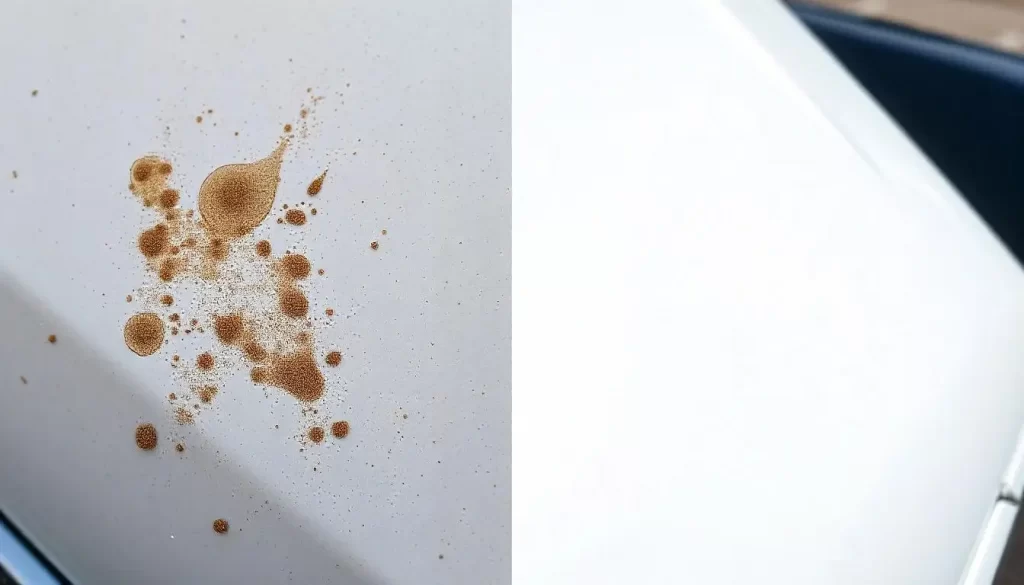
I. Understanding Car Wash Soaps
A. Types of car wash soaps
Before we get into the detail, let's talk about the different types of car wash soaps you might encounter. It's not just a one-size-fits-all situation – oh no, the world of car cleaning products is vast and varied.
First up, we have your standard car shampoos. These are generally pH-neutral and designed to be gentle on your car's paint while still effective at removing dirt and grime. Then there are the two-in-one wash and wax products, which claim to clean and protect in one go. Sounds convenient, right?
For those really tough jobs, there are heavy-duty car wash soaps. These bad boys are formulated to tackle serious dirt, but they can also be harsher on your paint if not used correctly. And let's not forget about the eco-friendly options, made with biodegradable ingredients for the environmentally conscious car owner.
B. Ingredients in car wash soaps
Now, I know what you're thinking – "Come on, it's just soap, right?" Well, not quite. Car wash soaps are actually a carefully balanced cocktail of chemicals, each with its own job to do.
The main players in most car wash soaps are surfactants. These are compounds that lower the surface tension between the water and the dirt on your car, making it easier to wash away. Think of them as little mediators, helping the water and dirt play nice so they can leave your car together.
Then we've got lubricants, which help the soap (and any dirt it's carrying) glide over the surface of your car without scratching. Some soaps also contain conditioners to help maintain the paint's shine, and pH balancers to ensure the soap isn't too acidic or alkaline.
But here's where it gets tricky – some car wash soaps might also contain ingredients that, while great at cleaning, could potentially harm your paint if used incorrectly or too frequently. We're talking about things like strong detergents or certain types of alcohols.
Also Read: Top 5 Benefits of Choosing a Mobile Car Detailing Service
II. How Car Wash Soap Interacts with Paint (Can Car Wash Soap Damage Paint? )
A. The chemistry behind car paint
Alright, let's get a bit sciency for a moment. Your car's paint isn't just a single layer of color slapped onto the metal. Oh no, it's a complex system of layers, each with its own purpose.
At the bottom, you've got your primer, which helps the paint stick to the metal and prevents rust. Then comes the base coat, which gives your car its color. On top of that is the clear coat – a transparent layer that protects the color underneath and gives your car that showroom shine.
This clear coat is actually a type of plastic – usually a polyurethane or acrylic urethane. It's tough stuff, designed to withstand the elements and protect your car's color. But like all materials, it has its vulnerabilities.
B. Soap's cleaning mechanism
So how does soap actually clean your car? Well, it's all about chemistry. Remember those surfactants we talked about earlier? They're the real MVPs of the cleaning process.
When you apply car wash soap to your vehicle, the surfactants get to work. One end of the surfactant molecule is attracted to water, while the other end is attracted to oil and dirt. This allows the soap to lift the grime off your car's surface and suspend it in the water, so it can be easily rinsed away.
But here's the thing – while this process is great for removing dirt, it can also potentially strip away some of the natural oils in your car's clear coat if the soap is too harsh or used too frequently. Over time, this could lead to a dull finish or even damage to the paint underneath.
Also Read : What Does Car Detailing Include?
III. Potential Risks of Using Car Wash Soap
A. pH levels and paint damage
Now, let's talk about pH – you know, that scale from 0 to 14 that measures how acidic or alkaline something is. When it comes to car wash soaps, pH matters a lot.
Your car's paint prefers to be treated with products that are pH neutral (around 7 on the scale). Why? Because anything too acidic or too alkaline can potentially damage the clear coat over time.
Highly acidic soaps (below 6 on the pH scale) can etch the clear coat, making it more susceptible to oxidation and fading. On the flip side, very alkaline soaps (above 8) can break down the oils in the clear coat, potentially leading to a dull finish or even paint damage if used frequently.
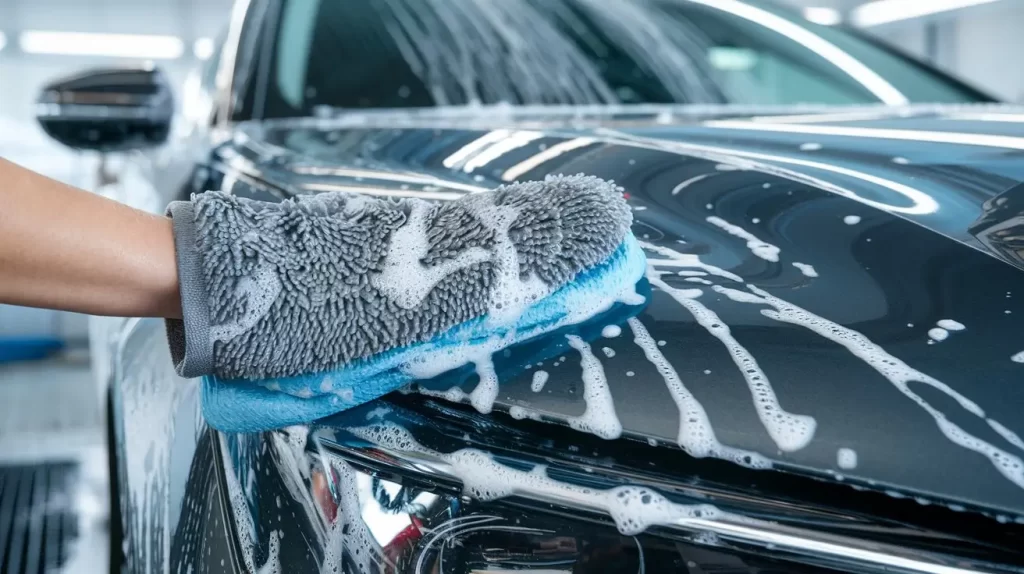
B. Abrasive ingredients
Some car wash soaps contain abrasive ingredients to help scrub away tough dirt and grime. While these can be effective at cleaning, they're also potentially harmful to your paint if used too aggressively or too often.
Think of it like exfoliating your skin – a little bit now and then can be good, but overdo it and you risk damaging your skin. The same principle applies to your car's paint. Abrasive ingredients can create tiny scratches in the clear coat, which over time can dull the finish and make your car more susceptible to damage from the elements.
C. Frequency of washing
Believe it or not, there is such a thing as washing your car too much. I know, I know – it sounds counterintuitive. But hear me out.
Every time you wash your car, even with the gentlest of soaps, you're subjecting the paint to some level of wear and tear. It's minimal, sure, but it adds up over time. Washing your car daily, for example, could potentially lead to premature wear of the clear coat.
Plus, frequent washing increases the chances of improper technique (we'll get to that in a bit), which can cause swirl marks or scratches in the paint.
IV. Proper Car Washing Techniques
A. Choosing the right soap
Alright, so we've talked about the potential risks – now let's focus on how to minimize them. It all starts with choosing the right soap.
Look for a car wash soap that's specifically designed for automotive use. These are formulated to be gentle on your car's paint while still being effective at cleaning. Avoid household detergents or dish soaps – they're often too harsh and can strip away protective waxes and sealants.
Also, pay attention to the pH level. Ideally, you want something that's pH neutral or close to it. Many quality car wash soaps will advertise their pH level right on the bottle.
B. Correct washing methods
Now, onto the washing itself. First things first – always start with a cool car. Washing a hot car can cause the soap to dry too quickly, leaving soap residue and water spots.
Use two buckets – one for your soapy water and one with clean water for rinsing your wash mitt. This helps prevent dirt and grit from being redeposited on your car's surface.
Work from the top down, using straight lines rather than circular motions. This helps prevent swirl marks. And don't forget to rinse your mitt frequently in the clean water bucket.
C. Drying and post-wash care
After washing, don't let your car air dry – this can lead to water spots. Instead, use a microfiber towel or a squeegee to dry your car.
Once dry, consider applying a wax or sealant to protect the paint. This adds an extra layer of protection against the elements and makes future washes easier.
Also Read: Ceramic Coating Installer Near Me
V. Myths vs. Facts: Car Wash Soap and Paint Damage
A. Common misconceptions
There are a lot of myths floating around about car washing and paint damage. One common one is that all car wash soaps are basically the same – not true! As we've discussed, there's a wide variety of soaps out there, each with its own properties.
Another myth is that the more suds, the better the cleaning. In reality, excessive suds can actually make it harder to rinse your car properly, potentially leaving soap residue behind.
B. Scientific evidence
While there's no denying that improper washing techniques or harsh chemicals can damage your car's paint, most quality car wash soaps, when used correctly, are unlikely to cause significant damage.
A study published in the Journal of Cleaner Production found that while some car wash methods can cause micro-scratches in the clear coat, these are typically not visible to the naked eye and don't significantly impact the paint's integrity when proper techniques are used.
VI. Alternative Car Cleaning Methods
A. Waterless car wash products
For those times when you can't do a full wash (or if you're in a drought-prone area), waterless car wash products can be a great alternative. These spray-on, wipe-off products are designed to clean and protect your car's finish without the need for water.
While they're convenient, it's important to use them correctly. Always use a clean, soft microfiber cloth and work in small sections to avoid scratching the paint with trapped dirt particles.
B. Clay bar treatments
Clay bar treatments are another great way to clean your car's paint without traditional washing. A clay bar can remove contaminants that have bonded to your paint, leaving it smooth and ready for waxing or polishing.
However, clay bars should be used sparingly – maybe once or twice a year – as they can be slightly abrasive if overused.
Also Read: How to Maintain Your Vehicle’s Interior Ceramic Coating
VII. Professional Car Washing vs. DIY
A. Advantages of professional services
Professional car washes have their perks. They often use high-quality, pH-neutral soaps and have the equipment to apply them evenly and rinse thoroughly. Many also offer additional services like waxing or ceramic coating application.
Plus, they're convenient. No hauling out buckets and hoses, no worrying about water restrictions – just drive in, and drive out clean.
B. DIY precautions
If you prefer the DIY approach (and let's face it, for many of us, washing our car is almost therapeutic), just be sure to follow best practices. Use the right products, work in the shade, and be gentle with your car's finish.
Remember, the goal is to clean your car, not give it an aggressive scrubbing. Treat it like you're bathing a baby – gentle, thorough, and with lots of care.
VIII. Protecting Your Car's Paint
A. Waxing and sealants
Waxing your car isn't just about making it shine (though that's certainly a nice bonus). A good wax or sealant creates a protective barrier between your car's paint and the environment.
This layer helps repel water, making it easier for dirt and grime to slide off during washes. It also provides some protection against UV rays, which can fade your paint over time.
B. Ceramic coatings
For next-level protection, there's ceramic coating. This is a liquid polymer that's applied to your car's exterior and chemically bonds with the paint, creating a layer of protection that can last for years.
Ceramic coatings offer superior protection against UV rays, chemical stains, and oxidation. They also make your car easier to clean, as dirt and grime have a harder time sticking to the treated surface.
Also Read: Interior Car Detailing: A Step-by-Step Guide
IX. Environmental Considerations
A. Eco-friendly car wash soaps
As we become more environmentally conscious, many of us are looking for ways to reduce our impact when washing our cars. Eco-friendly car wash soaps are a great option. These are typically biodegradable and free from harsh chemicals that could harm aquatic life.
But don't worry – eco-friendly doesn't mean ineffective. Many of these soaps clean just as well as their traditional counterparts.
B. Water conservation techniques
Another way to be eco-friendly when washing your car is to conserve water. Use a nozzle on your hose that allows you to easily turn the water on and off. Consider using a bucket instead of letting the hose run continuously.
And remember those waterless car wash products we mentioned earlier? They're a great option for conserving water, especially in drought-prone areas.
X. Special Considerations for Different Paint Types
A. Clear coat finishes
Most modern cars have a clear coat finish, which is what we've been primarily discussing. These finishes are durable but can still be damaged by harsh chemicals or improper washing techniques.
Always use a pH-neutral soap designed for automotive use on clear coat finishes. And remember – gentle pressure is key. Let the soap do the work of lifting dirt and grime.
B. Matte and satin finishes
If you've got a car with a matte or satin finish, you'll need to take extra care. These finishes can be easily damaged by traditional car wash soaps and methods.
Look for products specifically designed for matte finishes. These won't leave behind any gloss-enhancing residues that could ruin the matte effect. And whatever you do, don't wax a matte finish car – it'll destroy the look you're going for.
Also Read: How Much Does Interior Car Detailing Cost?
XI. Troubleshooting Paint Issues
A. Identifying soap-related damage
If you're noticing issues with your paint, how can you tell if it's related to your car wash soap? Look for signs like a dull, hazy finish, or a rough texture to the paint. These could indicate that harsh soaps have stripped away protective layers.
Water spots that don't come off with normal washing could be a sign that mineral deposits from hard water have etched into the clear coat – this can happen if soap isn't rinsed off properly or if the car is washed in direct sunlight.
B. Corrective measures
If you do notice soap-related damage, don't panic. For minor issues like water spots or a slightly dull finish, a good clay bar treatment followed by polishing and waxing can often restore the shine.
For more serious damage, you might need to consult a professional detailer. They have access to more aggressive polishing compounds and techniques that can often restore even badly damaged paint.
XII. Maintaining Your Car's Appearance Long-term
A. Regular cleaning schedule
The key to maintaining your car's appearance long-term is consistency. Aim to wash your car every two weeks, or more frequently if you live in an area with lots of dust, pollen, or road salt.
Regular washing prevents dirt and contaminants from bonding to your paint, making each wash easier and reducing the need for more aggressive cleaning methods.
B. Paint inspection and touch-ups
Make it a habit to inspect your car's paint regularly. Look for any chips, scratches, or areas where the clear coat might be failing. Catching these issues early can prevent them from turning into bigger problems.
For small chips or scratches, touch-up paint can be a quick fix. Just be sure to clean the area thoroughly and apply the paint carefully to avoid making the problem worse.
Also Read : How to Wash and Wax Your Car for a Professional Finish
XIII. Conclusion
So, can car wash soap damage paint? The short answer is: it's possible, but unlikely if you're using the right products and techniques. Like many things in life, it's all about balance and proper care.
Quality car wash soaps, when used correctly, are designed to clean your car effectively without harming the paint. The key is to choose a pH-neutral soap specifically formulated for automotive use, use gentle washing techniques, and rinse thoroughly.
Remember, your car's paint is its first line of defense against the elements. By taking the time to wash your car properly and regularly, you're not just keeping it looking great – you're protecting your investment and ensuring your ride stays in top condition for years to come.
Whether you're a DIY enthusiast or prefer professional services, the most important thing is to approach car washing with care and attention. Your car will thank you with a gleaming finish that turns heads wherever you go.
So the next time you're sudsing up your ride, you can do so with confidence, knowing that you're armed with the knowledge to keep your car's paint safe and shiny. Happy washing!
Frequently Asked Questions
Yes, harsh soaps with incorrect pH levels can damage paint by stripping the clear coat or leaving water spots.
Use pH-neutral soaps, avoid household cleaners, and wash using proper techniques to protect your paint.
Signs include dullness, hazy finish, or water spots that won’t come off, indicating damage to the clear coat.
Revive your ride anytime, anywhere
Schedule AppointmentQuestions? Call us now!

